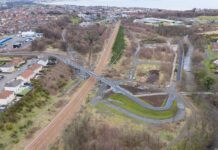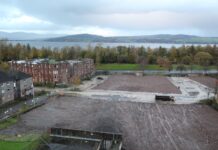THE Steel Construction Institute is to lead a new European project on the development of modular construction systems for high-rise buildings.
SCI, in partnership with modular supplier Futureform, architect HTA, and five other European partners, has won the 1.4 million project from the European Commission under the Framework 7 programme to support small- and medium-sized enterprises (SMEs).
The two-year project titled Modcons will involve physical testing and structural modelling aimed at extending the use of modular construction systems in the residential building sector in the participating countries of Spain, Finland and the UK.
Modcons was one of a very few projects awarded by FP7 for support to SMEs in the construction sector. It was considered to be innovative in terms of the off-site nature of the construction technology and for developing rules related to Eurocodes and CE marking.
Modular construction can be used for buildings up to 25 storeys, as evidenced by recent projects, and for this scale of construction, questions of stability, robustness, fire resistance, and in some European regions, seismic resistance, are important.
The partners are SCI, Futureform and HTA, which are active in residential markets; NEAPO, a modular supplier in Finland; the Technical University of Tampere; Tecnalia, a materials-based research organisation in Spain’s Basque country; and two specialist consultancies in Spain.
The work will lead to improved design-provisions for modular systems in accordance with Eurocodes, and to supporting research on the stability, robustness and seismic resilience of such systems for the European market.
Three work packages will also tackle aspects of architectural versatility, acoustic performance and the quantified sustainability benefits of modular systems, which are important to users and stakeholders in the design of modern modular construction systems.








